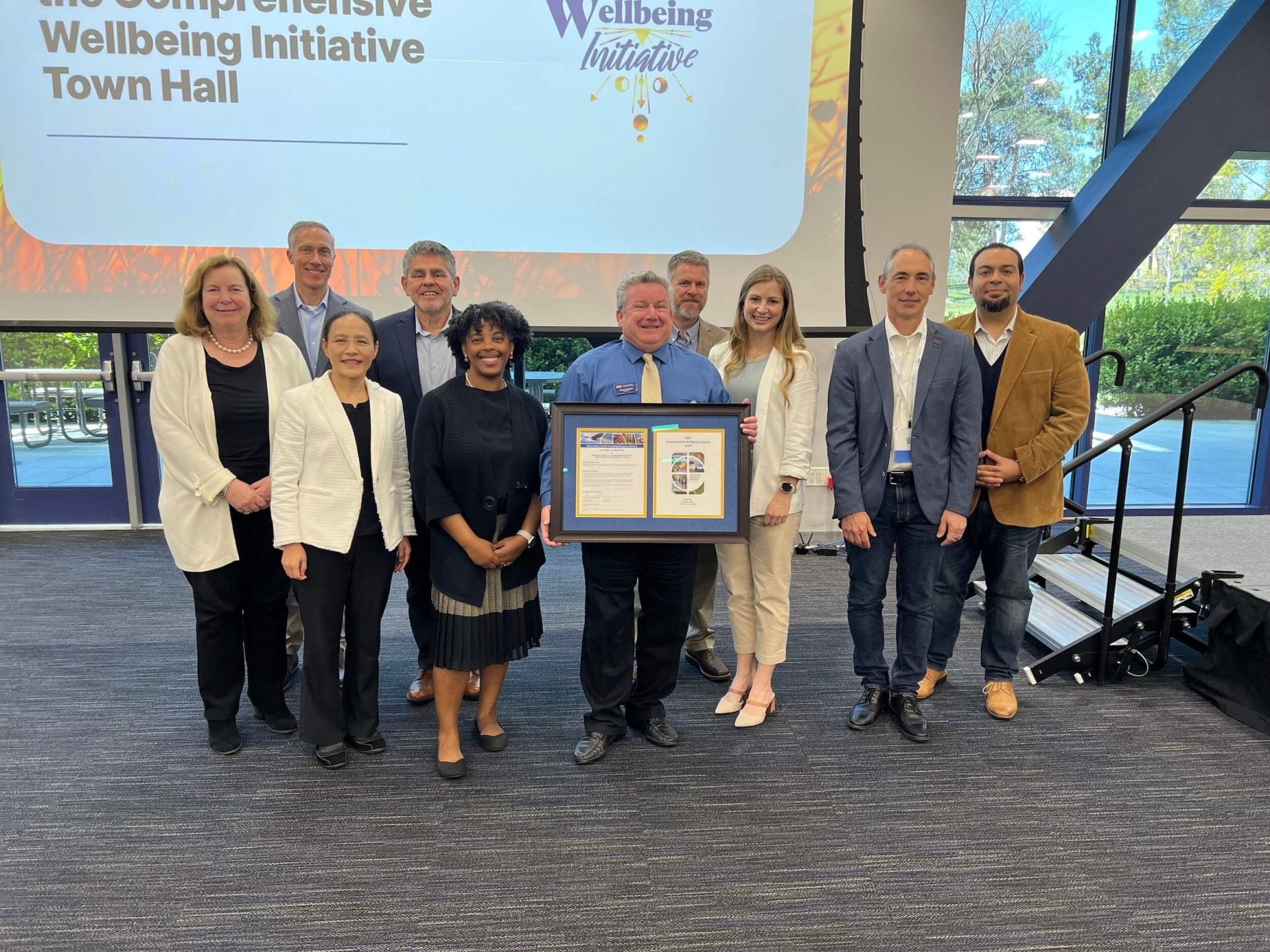Okanagan Charter
What is the Okanagan Charter?
In 2015, collegiate health promotion professionals from around the world gathered in British Columbia, Canada (on the traditional homelands of the Okanagan peoples) to draft a document (Charter) that would guide colleges and universities around the world to become health promoting institutions.
There are two primary “Calls to Action” that the Okanagan Charter asks of institutions:
#1
Embed health into all aspects of campus culture, across the administration, operations, and academic mandates.
#2
Lead health promotion action and collaboration locally and globally.
What happened next?
After the Okanagan Charter was finalized, countries around the world used it as a guiding and aspirational document to help colleges and universities in their countries become health promoting institutions. The United Kingdom and Canada rapidly became the global leaders in this effort. In 2018, leaders from the U.K. and Canada came to the United States at a conference in Portland, Oregon to share their models of success. In January of 2020, UCI joined 30 U.S. campuses in New Orleans, Louisiana to discuss the formation of a U.S. Health Promoting Campuses Network (USHPCN). This network was formed to support those campuses who wanted to adopt the Okanagan Charter and become health promoting campuses. There are currently over 200 campuses in the USHPCN, and more than 20 campuses have officially adopted the Charter.

UCI’s Official Adoption of the Okanagan Charter
On September 1, 2021 UCI joined seven other campuses, and became one of the first eight campuses in the United States to officially adopt the Okanagan Charter. The name of UCI’s formal plan is the Comprehensive Wellbeing Initiative (CWI). Since the official adoption in 2021, the CWI has been working on leadership and infrastructure. This culminated in a campus-wide Town Hall during Earth Week in April of 2023, formally announcing the details of the initiative to the campus, as well as the country (the Town Hall was streamed online for campuses across the country to watch).

What does adopting the Okanagan Charter mean?
To adopt the Okanagan Charter means campuses commit to a plan to make wellbeing a priority and institutional value. UCI’s plan is based in four pillars: Diversity, Equity & Inclusion; the Built Environment; Sustainability; and Supporting a Culture of Wellbeing. We want to ensure that wellbeing is accessible to all that call UCI home, whether for work, study or play. It is also important to ensure that our buildings, infrastructure and green spaces are supporting an environment that supports wellbeing for all, including the plants and animals that call UCI home. Our award-winning sustainability efforts also ensure that our natural resources (the air we breathe, water we drink, and the land the campus sits on) are protected and preserved for future generations.

Our Mission
One of the questions we get, is how is this different than any other health and wellness initiatives the campus already has or had? One of the first tasks the Leadership Team undertook was answering this question for ourselves, so as we explained the CWI to others, we were using consistent language and definitions.
The Okanagan Charter encourages campuses to focus energy on the wellbeing of people, places and planet, and not necessarily in that order. The health and wellness of people is commonly understood, and is the focus of most initiatives and/or campaigns. UCI already has many departments, people, programs and services for this work. The CWI is also concerned with the wellbeing of people, but also places significant focus on the place (meaning UCI as a place or setting), and our planet (including the natural resources it provides). CWI focuses on the systems and environmental approaches (policy, procedures/protocols, infrastructure) that support a culture of wellbeing, and make wellbeing an institutional value. Therefore, we operate with these definitions, which are guided by the World Health Organization:
Health
A complete state of physical, mental, and social well-being and not merely the absence of disease or infirmity (disorder or frailty).
World Health Organization Constitution (1948)
Wellness
The optimal state of health of individuals and groups. Two focal concerns: 1) The realization of the fullest potential of an individual physically, psychologically, socially, spiritually, and economically; and 2) the fulfillment of one’s role expectations in the family, community, place of worship, workplace, and other settings.
World Health Organization Glossary of Terms (2006)
Wellbeing
The ability and capacity of all beings (humans, wildlife, plants / landscapes) to thrive and flourish in the many ecosystems that make up our community and environment. It also considers the intersectionality and contributions of those ecosystems, to creating a culture of and capacity for wellbeing.
CWI Core Leadership Team
(A formal and comprehensive definition of wellbeing can be found in the WHO Geneva Charter, 2022)

